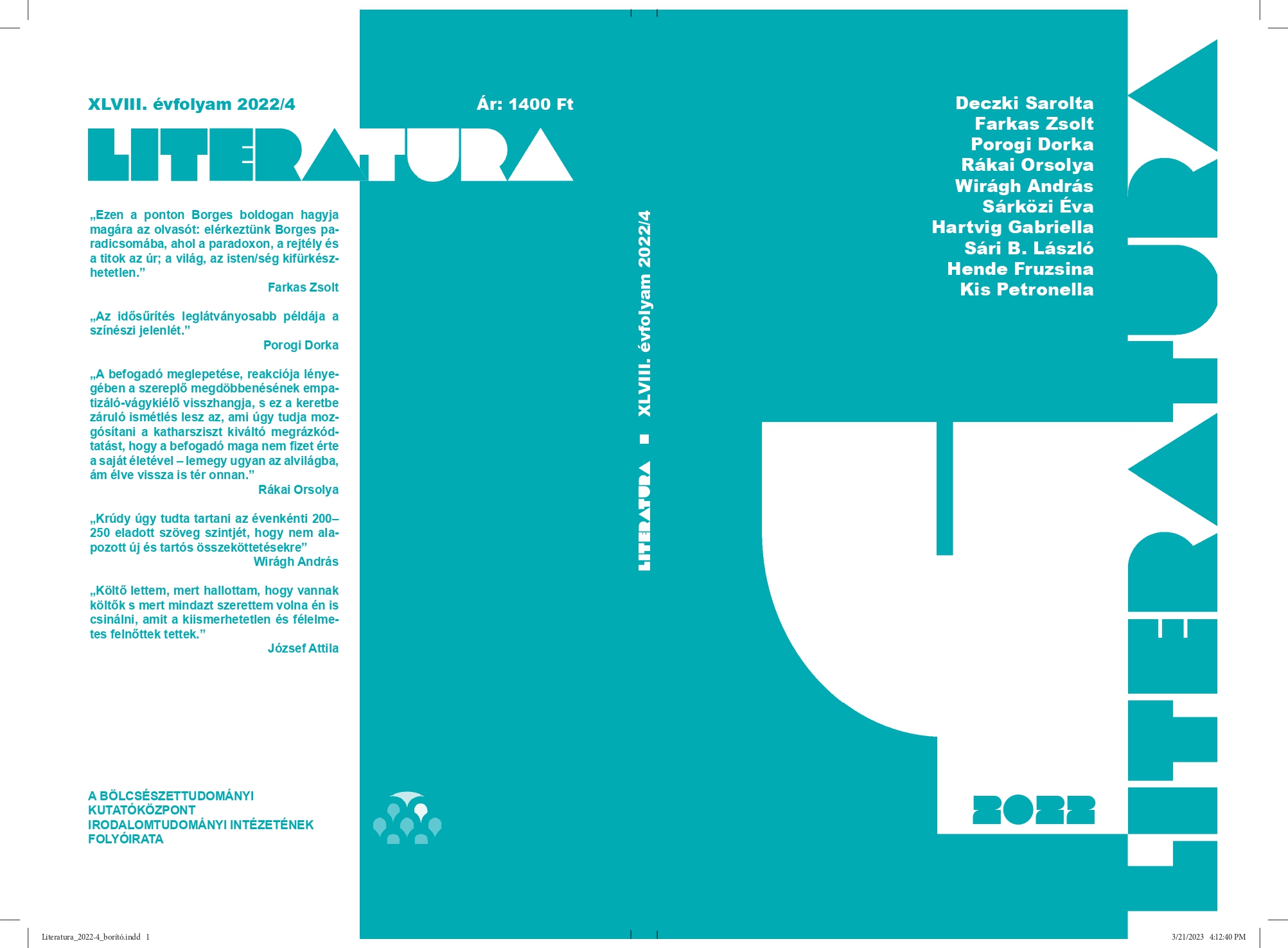A szeriális közlés diadala
Jelenetek Krúdy Gyula karrierjének első szakaszából
Absztrakt
Krúdy was an extremely productive author of his contemporary literary field. His publication process could easily become automatized by the different patterns of serialization. The paper links these patterns with cliches of Krúdy’s oeuvre, for example his relationship with the wellknown modernist journal Nyugat (‘West’) and Kálmán Mikszáth, whose narrative innovations and themes became a model for him, according to “shallow” contemporary critics. From the beginning of the 1910’s Krúdy serially published newspaper articles with only short pauses, and he signed an important contract with Singer and Wolfner Publishing in 1914. The participants came to terms about a 16-volume serial of his complete works. They managed to publish many of these books despite the crisis of the outbreak of WWI. Furthermore, Krúdy could handle the yet-unpublished works of the arrangement under different titles at other publishing houses. This short analysis of Krúdy’s networking demonstrates that this contract functioned as a kind of protection against some of the author’s steps which later had crucial consequences. Serial publishing in important newspapers during the Aster Revolution and the Hungarian Soviet Republic was like a red flag to a bull, namely to the conservative literary system, because it regarded Krúdy’s serial publishing in 1918–19 as the main “evidence” for his propaganda-based prosecution from 1920.



